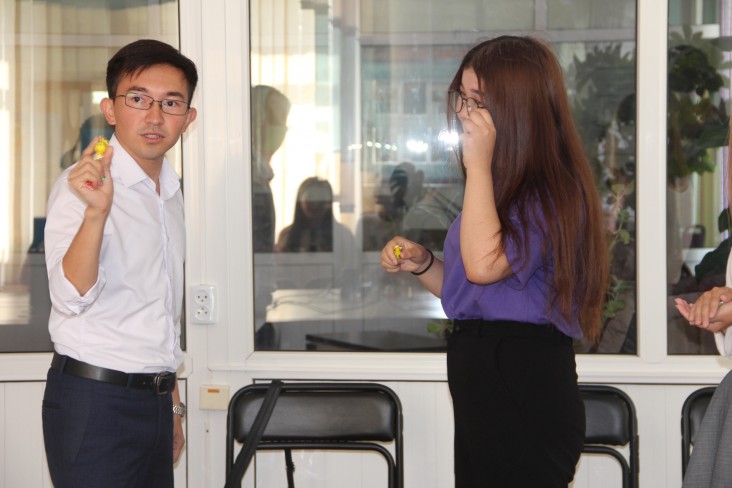Speeches Shim

Yerbolat Tursynqozha (23) is a young journalist at a local subsidiary of Kazakhstan’s main television channel in Kyzylorda, the main city in Kazakhstan’s remote southwestern region. In June 2019, he applied to become a certified Kazakh-language trainer in media literacy at the Minber Public Foundation, supported through USAID’s Central Asia Media Program. Implemented by Internews, the program offers intensive training courses to people who wish to become media literacy trainers.
Before starting his training, Yerbolat noted: “Most of what I’ve been doing in the profession was based on intuition and inspiration from a handful of Kazakh-speaking journalists who I followed on Facebook. I needed to educate myself and that’s how I found Internews. They were planning a media tour in Aktau in January 2018, but were unable to cover my travel. I said no problem, took a train there, and never regretted it. Later, when I learned about the Central Asia Media Program, it dawned on me that I could educate others, too.”
Through the USAID Central Asia Media Program, Yerbolat learned teaching methodologies, fact-checking, and verification tools. “The truth is that we spent four years in university learning about journalism from outdated Soviet-era books. I never understood it…I am thankful to Internews for giving me new learning prospects,” says Yerbolat.
After becoming a certified media literacy trainer, Yerbolat put his newly learned skills into practice, leading workshops on media literacy in three different towns near Kyzylorda (Shieli, Janakorgan, and Terenozek) where he trained young adults actively engaged in their communities.
Yerbolat and other young Kazakh-speaking journalists who have been trained by USAID’s Central Asia Media Program work closely with local governments to plan and conduct more workshops. They have received funding and other assistance for their activities from local governments where they work. To date, they have trained 100 young adults in Kyzylorda, Tekeli, Nur-Sultan, and Ucharal, inspired by the media literacy training they received through USAID’s Central Asia Media Program.
The USAID Central Asia Media Program aims to develop a more balanced information environment in Central Asia to increase openness among youth and adults with differing ideas, opinions and perspectives and, in turn, increase their engagement in civic participation. The program seeks to address challenges within the media landscape by strengthening journalistic professionalism, increasing media coverage in local languages, improving media literacy of the population to become critical consumers of information, advocating for an improved legal-regulatory environment for media, and improving financial sustainability of media outlets.

Comment
Make a general inquiry or suggest an improvement.